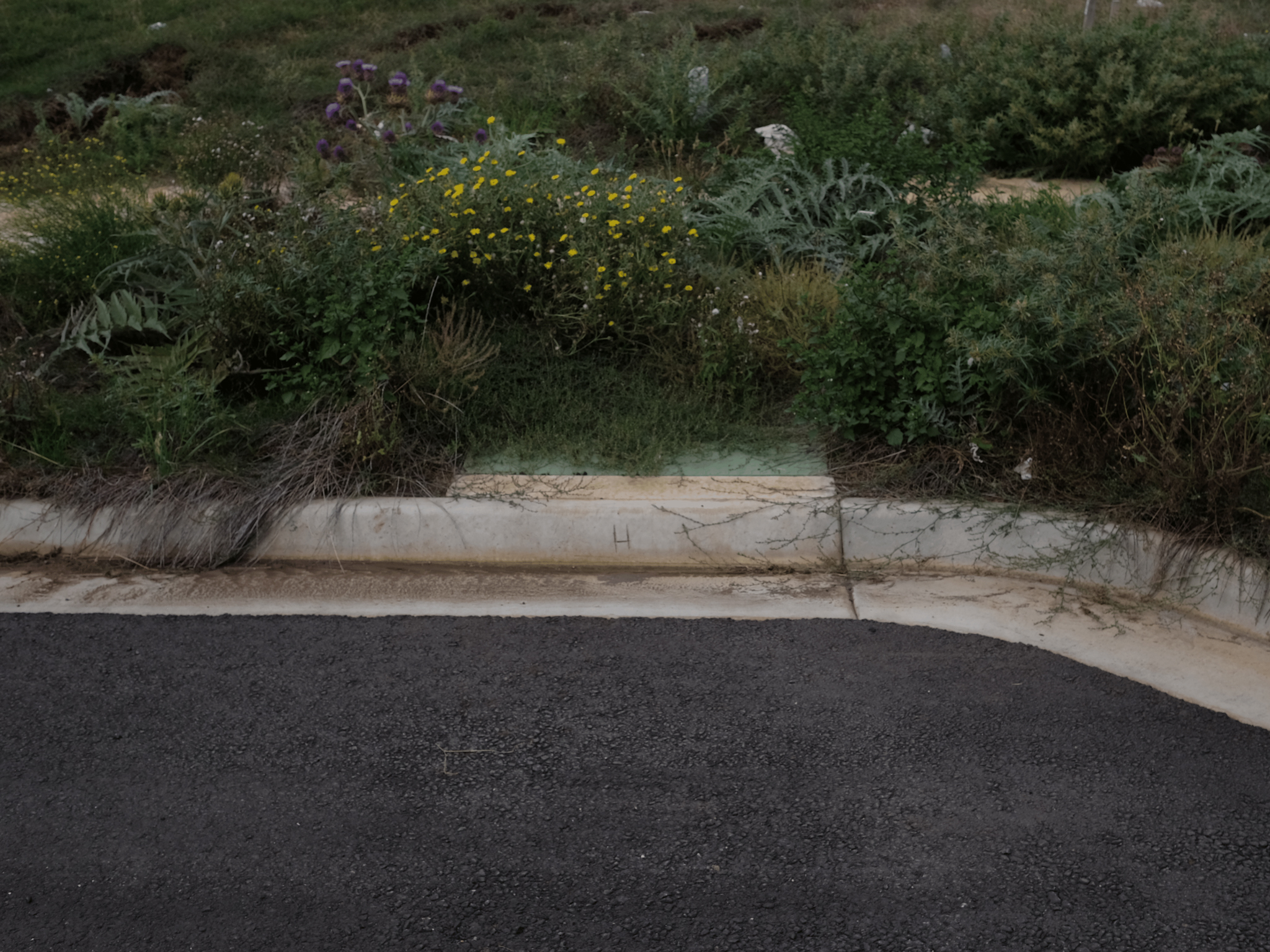Future Archaeology
Jenny Carey
Mitchell Pollard
Gracie O’Malley-Welby
We acknowledge the traditional owners and custodians of the unceded land in which we work and study, the Woi wurrung and Boon wurrung language groups of The Kulin Nation.
We acknowledge the traditional owners of the Werribee region, the Wadawurrung Peoples, whose land our site is located on.
We honour Elders past, present and emerging.
They stand, peering through barbed wire fences, two women and a man. Cameras hang from their necks. In the far distance stand the You Yangs, granite peaks formed in the Devonian Period. Hundreds of millions of years of sun, wind, rain and fire have left behind a flat blanket of soil at their base: The Western Plains of Victoria.
They walk through the clearing to where the explorers stood to survey the landscape. They sent their observations - men at desks called it “Terra nullius.” Other men looked over the making of Basalt walls, by convict hands. The landscape forever after divided into geometric parcels. Neater to be bought and sold.
Perfect for sheep grazing, the soil becomes compact, salinated, erodes. The composition of the grasslands is forever changed.
A chorus of horns breaks the silence. Trucks haul concrete up and down the highway to construct the future homes of the expanding city, the basalt of the Anthropocene shapes ruins in reverse.
The three return to their car; they pass the train track under construction. It is lined with rubbish, piling up beside as quickly as housing estates do - rubber tires, Ikea sofas, plastic sheets, beer bottles, baby formula.
Through the window they see the site reserved for a seed production and waste recycling. Here people will stand and sort the rubbish, recycling and landfill that passes through. They will study and care for the grasslands. A futile attempt to regulate material flows, to stem the speed of growth and decay.
To their left: the site of a future park. People will walk through the grass and volley balls over the nets, sand flying under feet, thousands of years of stone and bone crushed to dust connects players to the lives of creatures ancient and unconceived.
The paths, maintenance sheds and toilets built to serve the public and the grasslands, of now and one-day, slowly rust in the wind and the rain.
The shed too will return to sand and soil, ruin and disappearance inevitable. A future archaeology.
